Mozambique: Terrorists behead two and burn down luxury camp - AIM report
Mozambique: Spread of drug dens in Beira boosts consumption, trafficking
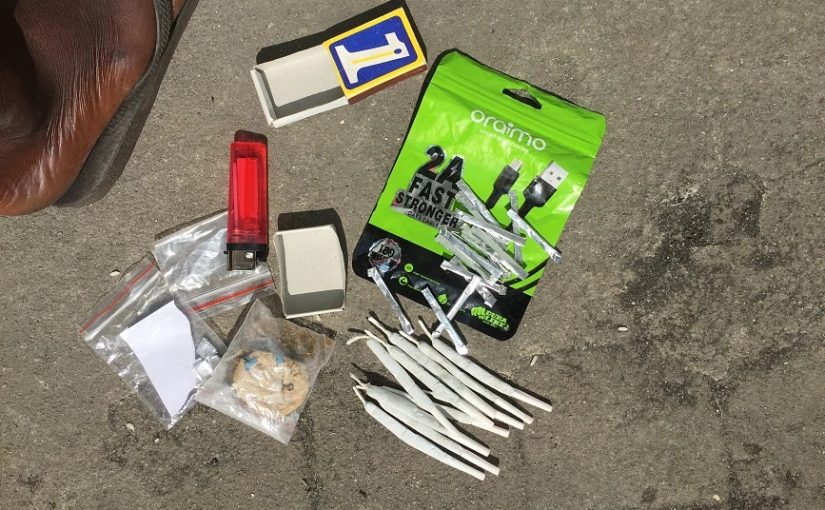
File photo: Lusa
The proliferation of so-called “bocas de fumo”, drug dens where drugs are sold and consumed, all over the city of Beira, in central Mozambique, is worrying the authorities, who are trying to deal with the problem by raising awareness and providing training.
In the last two weeks alone, at least ten people have been arrested by the Mozambique Republic Police (PRM) in the capital of Sofala province, accused of consuming and selling cannabis sativa and heroin, mostly from neighbouring Malawi and Tanzania, and Brazil, according to the authorities.
Nilsa Patrício, 22, is a user and told Lusa that she was influenced by her ex-partner more than three years ago. She was eventually arrested this month by agents from the National Criminal Investigation Service (SERNIC) in possession of 21 doses of heroin ready to be consumed.
“I left home, went downtown to the Madeira Zinco area and bought 21 doses of heroin. I smoke, I know they sell it there all the time and I bought this amount to smoke,” the young woman explained to Lusa, covered only in a ‘capulana’ [sarong], without hiding her fear, but also her cold, after almost four days in the cells of the 5th PRM police station.
“I don’t have a good explanation because in reality I’m lost, and it’s already wrong (…) I regret having entered this world of drugs,” she said.
Similarly addicted, Mariana, 26, says that it hasn’t been easy to stop using, despite her attempts: “When I stop, I feel sick, I feel pain, nausea, cold. I’m shaking because I haven’t used since Tuesday,” confessed the young woman, who was also arrested.
“I tried to stop for a while, but when I lost my daughter, I started again. Madeira Zinco is where I always buy, it’s sold there, and there are no opening hours. I don’t know the names of the people who sell, but I knew the people. There are a lot of people who sell,” she explained.
Raimundo Tomas, 28, consumes and sells drugs on the streets of Beira, in the well-known “bocas de fumo”. He started under the influence of friends and never stopped.
“I bought it in the Macuti neighbourhood from a young man. I take it to consume here in my neighbourhood, and the rest I sell to friends. I don’t always have steady customers because it’s not my usual activity. I’ve been doing it for a couple of years now,” he said, unafraid.
Mozambique has become one of the main platforms for international drug trafficking, particularly from the American continent, which has led the national authorities to train police and customs agents in the city of Beira, who work at road, railway and airport terminals.
The agents revisited subjects related to preventing and combating drug trafficking in order to effectively identify those who transport drugs. In the last 12 months, around a tonne and a half of various drugs seized at various locations have been incinerated in Sofala.
Alfeu Sitoe, SERNIC’s spokesperson in Sofala, explained that all the initiatives underway are being coordinated by the police force but also involve the education sector, justice administration bodies, the tax authority, migration, churches and even the families of young people and teenagers.
Moreover, the criminal investigation police force itself is aware of the areas of the city known to be trafficked, including the presence of activity in a network considered to be a business and with drug dealers who even have contracts.
“That place where these drug sales and consumption activities take place belongs to an organisation that has a responsibility to remove those people who are there,” admitted Alfeu Sitoe.
“We believe that they are there illegally. They are not part of the contractual link with this company that owns that place, so this company can be used, or this company can take the initiative and not just wait for there to be a fight as such,” he appealed, about a place considered “eye-catching and inviting” for those activities, in the middle of Bairro do Pioneiro, another point where the “bocas de fumo” are multiplying in the city of Beira.
Alfeu Sitoe said that last year, in an operation, quantities considered to be industrial quantities of cannabis sativa, commonly known as ‘swazi gold cannabis’, were seized inside a passenger transport vehicle, and the collector and driver were arrested for colluding with the crime of drug trafficking.
“A public transport company at its terminal, we went there, and we already had information that that bus was carrying some quantities, and we managed to seize it. And it was this ‘suazi gold cannabis’, and in that seizure, the collector was held responsible because he was the one who received the parcel, he knew what it was and he knew who he had to deliver it to,” he said.
The spokesman for the anti-drugs office in Sofala province, António Semente, explained to Lusa that in order to curb the circulation of cannabis sativa, cocaine and heroin, the drugs most seized by the police, training is taking place in the city of Beira for agents who work in the areas considered to be centres of transit and commercialisation of these products.
“We have to make all of us, parents and carers, aware that consuming cannabis is not good for the individual,” he concluded.


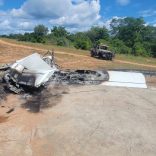
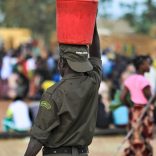
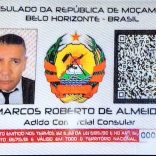
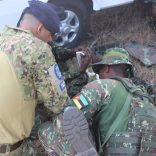
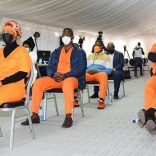






Leave a Reply
Be the First to Comment!
You must be logged in to post a comment.
You must be logged in to post a comment.